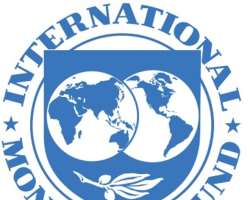Statement at the Conclusion of an IMF Mission to Botswana

GABORONE, Botswana, May 6, 2014/African Press Organization (APO)/ -- An International Monetary Fund (IMF) mission led by Mr. Lamin Leigh visited Gaborone during April 22-May 2 to conduct the 2014 Article IV Consultation discussions with Botswana. The mission's work focused on reviewing recent economic developments and prospects and policies to ensure continued macroeconomic stability and growth. The mission met with Minister of Finance and Development Planning, Honorable O. Kenneth Matambo; Bank of Botswana Governor, Linah K. Mohohlo; Permanent Secretary Ministry of Finance and Development Planning Solomon Sekwakwa; senior government officials; development partners; and representatives from the private sector and civil society.
At the end of the mission, Mr. Leigh issued the following statement in Gaborone today, outlining the mission's preliminary conclusions:
“Botswana is undergoing a cyclical recovery in line with its major trading partners. The economy grew faster than expected in 2013 at about 6 percent, owing to the improved performance of the mining sector. However, the non-mineral sector slowed down from about 6 percent in 2012 to about 5 percent in 2013, partly reflecting recurring power supply disruptions and to some extent the drought. For the first time in 15 years, both headline and core inflation stayed well inside the Bank of Botswana's medium-term objective range of 3-6 percent for a considerable period, which is a testament of the authorities' good macroeconomic management. Preliminary data show that the government also recorded a small surplus in the fiscal year 2013/14 in the fiscal accounts through reining in current expenditure along with higher mining revenue. On the external front, the current account balance turned into a surplus in 2013 supported by a rebound in diamond exports.
“Looking ahead, real GDP growth is expected to moderate to 4½ percent in 2014, as the slowdown in diamond recovery and continued problems in electricity production and water supply will likely soften the pace of economic activity.
“The 2014/15 budget should help to rebuild the net financial position of the government. While the current size of the Pula Fund is adequate for stabilization purposes, the mission welcomes the authorities' intentions to create additional savings from non-renewable resource revenues to transfer diamond wealth across generations. The budget's emphasis on improving the performance and finances of parastatals is also well placed. Delivering good outcomes in the implementation of the public investment program would require improving public financial management (PFM), including in the area of project management, monitoring and oversight. Thus, the mission welcomes the initiatives that have been put in place to strengthen public financial management within the government and improve the quality of the public investment program.
“The mission recommends that macro prudential measures be used to address the continued rapid increase in household indebtedness. In this context, the mission welcomes steps being taken to strengthen the capacity of the non-bank financial institutions regulatory agency. The ongoing diagnostic study on the current credit reporting system (CRS) in Botswana which was conducted by the authorities to identify the gaps, and provide recommendations on improving the current credit reporting system is a step in the right direction. The government's emphasis on enhancing greater financial inclusion, while committing to provide adequate safeguards to preserve the stability of the financial system, is also welcome.
“Returning to an era of strong growth and accelerating Botswana's convergence to higher income levels would require a set of policies to reinvigorate economy-wide productivity including addressing the skills shortage in the economy. These include improving the quality of public spending, the efficiency of the tax system and addressing the skill mismatch in the labor market. In this regard, the mission commends the government on the skills development policies announced in the 2014/15 budget which should be seen as an integral part of a broader set of policy actions that include employment, investment and innovation policies in order to reinforce the links between the educational system and labor market outcomes. The authorities should also continue to improve the country's competitiveness, including reducing further the regulatory burden on firms to create the enabling environment to facilitate structural transformation of the economy.
“Finally, the mission would like to express its sincere gratitude to the Botswana authorities for the consistently high quality of the policy discussions and for their warm hospitality.”
